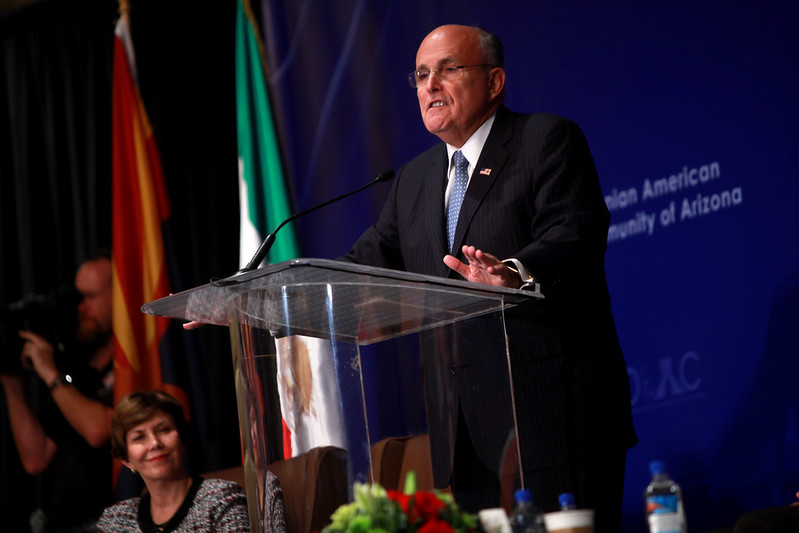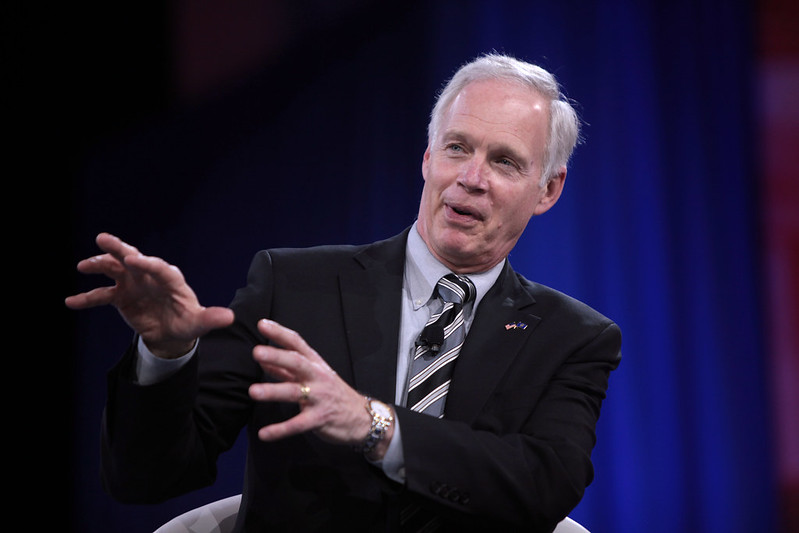Clarifying the Scope of the Legal Profession’s Ethical Responsibilities: A Response to John Bies
John Bies’s Sept. 30 post (“Giuliani Cannot Rely on Attorney-Client Privilege to Avoid Congressional Testimony”) is informative but doesn’t quite explain the full scope of a lawyer’s confidentiality responsibilities, nor does it address the implications of Congress compelling an attorney to breach them.

Published by The Lawfare Institute
in Cooperation With

John Bies’s Sept. 30 post (“Giuliani Cannot Rely on Attorney-Client Privilege to Avoid Congressional Testimony”) is informative but doesn’t quite explain the full scope of a lawyer’s confidentiality responsibilities, nor does it address the implications of Congress compelling an attorney to breach them. It is true, as Bies says, that the attorney-client privilege mainly protects “confidential communications between a client and an attorney made for the purpose of obtaining legal advice,” but an attorney’s ethical obligations to safeguard discussions with clients can go much beyond that.
First, the basics: As discussed elsewhere, the attorney-client privilege is an evidentiary rule while a lawyer’s obligation as to confidentiality is a matter of legal ethics. This is detailed in a 2007 article by Sue Michmerhuizen, of the American Bar Association’s (ABA’s) Center for Professional Responsibility.
Michmerhuizen explains that beyond the attorney-client privilege, there is an “ethical duty of client-lawyer confidentiality [that] is quite extensive in terms of what information is protected.” She notes that “if a court determines that particular information is not covered by the attorney-client privilege, it still may be covered by the lawyer’s ethical duty of confidentiality.”
In fact, the information covered by a lawyer’s ethical duty of confidentiality could be quite extensive. Specifically, Rule 2.1 of the ABA’s Model Rules of Professional Conduct talks about lawyers providing advice in which a wide variety of nonlegal considerations are prominently included:
In representing a client, a lawyer shall exercise independent professional judgment and render candid advice. In rendering advice, a lawyer may refer not only to law but to other considerations such as moral, economic, social and political factors, that may be relevant to the client's situation. (Emphasis added.)
The commentary elaborates on the rule and adds this significant admonition:
Advice couched in narrow legal terms may be of little value to a client, especially where practical considerations, such as cost or effects on other people, are predominant. Purely technical legal advice, therefore, can sometimes be inadequate. (Emphasis added.)
Thus, in order to avoid providing advice that is ethically “inadequate,” an attorney may be obliged to go beyond “technical legal advice.” This tracks with what L.O. Natt Gantt has concluded. He contends that “despite the innocuous, permissive language in Rule 2.1, attorneys may be required to discuss nonlegal considerations with their clients in certain instances” (emphasis added).
Rule 2.1 must be read together with the ABA’s Rule 1.6 (“Confidentiality of Information”), which prohibits a lawyer from revealing “information relating to the representation of a client” (absent the application of a few exceptions). Accordingly, the “moral, economic, social and political factors” described in Rule 2.1 would certainly be covered by that confidentiality requirement even if they were only “relating to the representation.” Thus, the Rule 1.6 confidentiality requirement would extend to a Rule 2.1 discussion, which could cover topics that merely “may be relevant” to the client’s “situation”—a far more inclusive obligation.
The implications? Bies further contends that Congress’s “long-term position” is that the “attorney-client privilege does not afford protection against compelled congressional testimony.” (Not everyone agrees: see here.) But if Bies is right, we might well have a situation where a lawyer’s ethical responsibilities would impel him or her to refuse to answer. The legal profession’s ethical rules (and the New York Bar rules applicable to Guiliani appear to largely mirror the ABA’s in this regard) do not seem to provide any special exception for congressional investigations.
Putting aside the complicated specifics of Guilliani’s situation, one can readily envisage cases where Congress will try to penalize a lawyer-witness for refusing to testify about client discussions, even where they are reasonably within the sphere of an attorney's ethical obligations of confidentiality. If Congress nevertheless succeed in extracting the information, it’s hard to imagine that trust in the legal profession writ large would not suffer. (Lawyers are already among the least trusted professions in the U.S.)
Still, does it matter that the forum is a congressional investigation? Would breaching the counselor-counselee relationship in that context operate to effectively deprive Congress’s ultimate targets of legal representation? If it serves to show that no one can really trust his or her attorney to keep private discussions otherwise properly within the confidentiality rule or the attorney-client privilege, it could very well have that effect.
Assuming the absence of matters that would trigger something like the crime-fraud exception, do Americans want even disfavored clients to have confidential access to counsel at every step of legal proceedings, including the investigatory phase? In 2007 the Washington Post seemed to say they do. Writing with respect to terrorist suspects detained at Guantanamo who were then being investigated for serious law of war violations, the Post insisted that “[m]ost Americans understand that legal representation for the accused is one of the core principles of the American way.” The Supreme Court in Powell v. Alabama seemed to recognize the importance of having legal representation at the investigatory stage, In explaining the scope of the Sixth Amendment right to counsel, the court noted that “[e]ven the intelligent and educated layman has small and sometimes no skill in the science of law … [and] requires the guiding hand of counsel at every step in the proceedings against him” (emphasis added).
My sense is that a reasonable person—even one who took the time to read Rule 2.1 and its commentary—would understandably believe that any discussion appropriately within its purview would be protected. People may not have any sympathy for Giuliani or his client, but the norm being established could be applied to others.
As just one example, consider discussions between Guantanamo lawyers and their clients. Does anybody believe that such conversations were strictly limited to “confidential communications between a client and an attorney made for the purpose of obtaining legal advice,” or is it possible—even likely—that from time to time such discussions extended to “moral, economic, social and political factors, that may be relevant to the client's situation”? Here’s another possibility: How about the discussions of those factors by counsels for migrants? Actually, Congress can conjure up an investigation on virtually anything without much difficulty. If disposed to do so, it would seem it could use such forums to get damaging information of the Rule 2.1 variety from what lawyers and their clients understandably thought were protected conversations.
The “get-it-from-the-lawyer” technique is surely to burgeon if it isn’t restrained. After all, although Special Counsel Robert Mueller went about it somewhat differently, the Washington Post noted early in the Mueller investigation that he made it clear that he was “willing to use suspects' lawyers to provide evidence against them.” This obviously provides a template for others to imitate and even expand upon. It predictably chills lawyer-client discussions even if they were within the ABA’s rules and invites potential targets to think they may be better off without counsel.
We need to ask ourselves this: Do we really want to advance norms that in effect deprive investigative targets of confidential legal assistance, even for matters that are clearly within the intended ambit of professional rules? Is that really the chilling effect we want as we look ahead to a growing number of formidable and well-resourced government investigations the targets of which plainly need, as the Supreme Court put it, the “guiding hand of counsel at every step in the proceedings”?


-final.png?sfvrsn=b70826ae_3)

